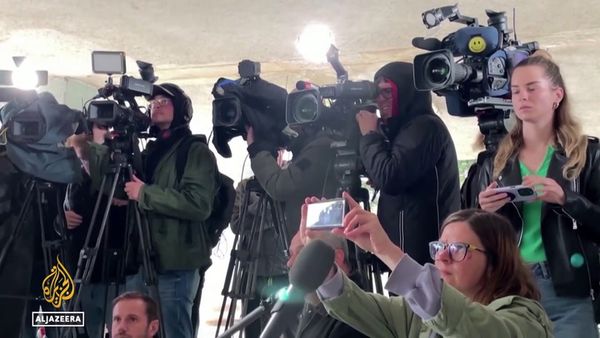The question of how secret medical records were improperly disclosed to lawyers of relatives of Sandy Hook victims involved in a Texas defamation suit was answered at a disciplinary hearing in Superior Court in Waterbury on Thursday: by accident.
F. Andino Reynal, who defended conspiracy theorist Alex Jones in a Texas suit brought by the parents of a first grader killed at Sandy Hook Elementary School in 2012, said he instructed his secretary in late July to transmit what was supposed to have been a file of Jones’ text messages to the parent’s lawyers.
Inadvertently, Reynal testified, a massive trove of digitalized evidence, including closely guarded medical and psychiatric records of the relatives of Sandy Hook victims pressing separate suits against Jones in Connecticut, was transmitted to lawyers pressing the Texas suit.
Reynal said that by the time he learned of the extent of his error it was too late to demand the immediate return or destruction of the records under Texas court rules that provide a 10-day period for the clawback of inadvertently disclosed records and prohibit the recipient from using them.
The admission came Thursday at an unusual disciplinary hearing ordered by Judge Barbara Bellis, who is presiding over a highly contentious, four-year-old Connecticut lawsuit by a second set of relatives of Sandy Hook victims against Jones. The suit contends Jones defamed the families and caused them to suffer emotionally by asserting repeatedly over his radio and internet platforms that the elementary school massacre was a hoax perpetrated by gun control advocates.
Bellis has ordered Reynal and Connecticut lawyer Norman A. Pattis, who is defending Jones in the Connecticut suit, to demonstrate why they shouldn’t be sanctioned for disclosing to unauthorized recipients medical records sealed by court order and state and federal law. Testimony so far in the hearing shows that Pattis provided the records to an authorized Texas bankruptcy lawyer, who in turn gave them to Reynal.
The medical and psychiatric records at issue reflect the treatment of the parents and relatives suing Jones in Connecticut. The records were collected to support their claims for compensation for the harassment and emotional trauma they claim to have suffered as a result of Jones’ assertion that the deaths of 20 first graders and six educators never happened.
Pattis seemed to surprise Bellis when he asserted his fifth amendment right against self-incrimination when called to testify about his role in the transmission and ultimate disclosure of the records.
Bellis cut off Pattis’ lawyer, Wesley R. Mead, when he tried to explain why Pattis was asserting his right against self-incrimination.
“This is highly unusual, I would say, at the least, if not unprecedented for an attorney to take the fifth during a show cause hearing,” Bellis said.
Bellis ordered Mead and Brian Staines, who prosecutes attorney misconduct for the state judiciary and who she appointed to direct the inquiry, to submit briefs on the implications of an attorney asserting his fifth amendment right when asked to cooperate in a disciplinary hearing.
She closely questioned Reynal throughout his hours of testimony Thursday about all aspects of his handling of confidential records, from the capability of his computer security hardware to his practice of labeling files to his secretary’s training and experience. The questions seemed to address the adequacy of the steps Reynal took to protect personal records Bellis had classified as highly confidential and attorney’s eyes only.
Reynal said he intended to send a file of Jones’ text messages in response to a request from Mark Bankston, an attorney representing the parents in the Texas suit. The request came as both sides worked around the clock on preparing for the Texas trial, which earlier this month resulted in a $49 million judgment against Jones.
Reynal said that on July 22 he asked his secretary to transmit by email a link to a file on his computer server that contained the text messages. Early the next morning, a Saturday, Reynal said he noticed an email sent hours earlier from Bankston saying that he had received a link to a file containing medical records.
On July 23, Reynal said he asked Bankston by email to disregard the link and he would work on resending the proper material. He testified that he assumed Bankston would comply. He said he also instructed his secretary to disable the link to the medical records.
Reynal said he was “stunned” about two weeks later when Bankston announced during the Texas trial that he had received protected medical records as he was preparing to cross examine Jones.
“He surprised me at trial,” Reynal testified Thursday. “It was incredibly embarrassing. I was very, very worried. It was a disaster. I think it was the worst day of my legal career.”







